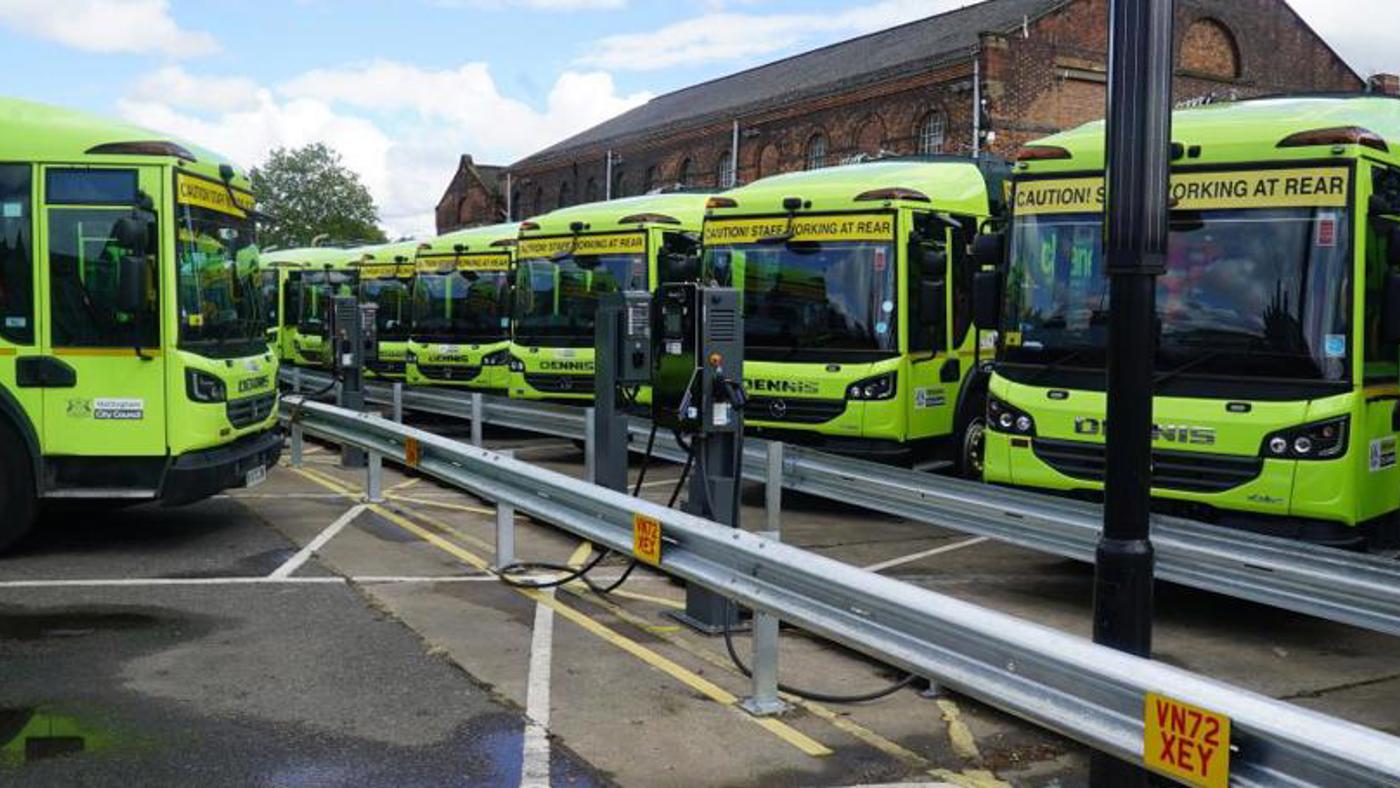
Nottingham City Council save £1 million in EV fleet running costs annually
Nottingham City Council used Clenergy EV’s chargepoint management system (CPMS) to help save them £1M in annual running costs and report a 1,162,000kg reduction in its carbon footprint. These results, coupled with their extensive experience in transitioning 50% of its fleet have seen them cited by fleet managers from multiple sectors as the blueprint to successfully navigate the road to net zero.
Despite more than half of fleet departments yet to start their transition, Innovation & Change Manager, Matt Ralfe, recalls the council’s progressive attitude when they started seven years ago.
Nottingham City Council is regarded as a leading local authority for transport in the UK, having invested over £1 billion in the city’s active and public transport systems over the last decade thanks to its innovative Workplace Parking Levy – the first of its kind to be implemented in Europe.
Building on its success, the Council started decarbonising its fleet in 2016. The Council has been able to rapidly electrify its fleet, which has led to social and environmental benefits for its employees and citizens, while also delivering significant operational savings during a period where the Council’s resources were stretched.
Recouping running cost
They’re now more than halfway through their transition with 243 EVs on fleet which includes the UK’s first fully electric sweeper, cage tipper, minibus and bin lorry. The fleet electrification has only been possible due to a comprehensive strategy informed through a CPMS to minimise disruption, help fleet managers hit charging deadlines, boost drivers’ EV confidence and typical fuelling habits early on in the project.
“From the start, it was vital to have a clear view of the multiple charging sites used by staff delivering services to the city, and data to inform decisions to minimise disruption,” explains Matt. Who goes on to say how partnering with Clenergy EV gave Nottingham City Council the ability to be effective and drive through change:
“We quickly learned their CPMS gave us a way to manage our fleet’s charging to better recoup the costs of the initial investment. The system allows us to identify and address vehicles using higher day tariffs for charging and we can then use Clenergy’s system to delay charging until the discounted off-peak energy rates kick in."
“It also allowed us to monitor, in real time, how our wide variety of vehicles charge and understand the time and quantity of electricity required for our EV fleet which allowed us to descope our new substation at great saving to the Council.”
He’s keen to point out that after initial nervousness from staff, the intelligent use of data and minimal disruption has helped change opinions: drivers and managers are overwhelmingly positive about their EV experience, with many refusing to switch back. “Some have even reported unexpected health benefits such as fewer headaches and reduced stress levels” he says.
“I think people are really proud of what we’ve achieved. To use a small example, the twenty fully electric purpose-built bin lorries now in use save up to 700L of diesel and 1700kg of CO2 every day. That’s £360,000 a year we save on the running cost for twenty vehicles and 450 tonnes of carbon dioxide emissions every year.”
Reducing range anxiety and supporting mass adoption
Will David, CEO of Clenergy EV is not surprised that Nottingham City Council has made such great strides with their fleet’s transition and towards their broader Fleet Electrification Strategy.
He says, “Nottingham City Council wanted to invest in a maintenance and charging infrastructure that supports more people in the city to make the switch. And they quickly grasped the need for open protocols over proprietary software and hardware bundles that lock chargepoint owners in and do nothing to solve range anxiety or encourage mass adoption. It’s no surprise they are viewed as the Council to copy.”
Sharing lessons learned
With over 50% of their fleet vehicles now electric, Nottingham City Council has saved the equivalent carbon as planting 6000 trees a year and are well on track for their own sustainability target of net zero emissions by 2028. And they are keen advocates of sharing knowledge, lessons learned and useful CPMS features people may benefit from too.
Clenergy EV for fleet managers
- Manage staff onboarding, easily adding or removing RFID cards for assigned vehicles
- Easily add or remove vehicles to stay on top of and manage fleet assets
- Our charge point partnerships mean you can control fleet charging locations with the option to hide employee visibility of expensive chargers
- Report on fleet charging costs and locations, pinpointing usage and where spend can be addressed
- A single billing report that can be subdivided by departments for easier decision making
- Assigned account managers and expert 24/7 customer service line
Clenergy EV for charge point operators
- Reports on carbon footprint reduction, faults like loss of communications and repairs, maintenance schedules, and the ability to set payment charges via variable and off-peak tariffs so you can monetise your network
- Load management so charge points don’t exceed supply limitations or require costly grid upgrades
- Set maximum supply limitations for charger groups and set safety buffers
- Add or remove charge points from multiple manufacturers to a network
Securing Funding
As a leader in electrification, Nottingham City Council have received around £16.5 million in government funding to help with the rollout of their public chargepoints. But for most, the workplace charging scheme (OZEC) offers up to 75% of the total cost of the purchase and installation of EV charepoints up to the value of £14,000, equating to £350 of each charging sockets. This is applicable for a maximum of 40 sockets and available for any business, charity, or public organisation provided they can demonstrate a need for EV charging equipment or a desire to encourage EV usage in their workforce. The criteria is detailed here.



